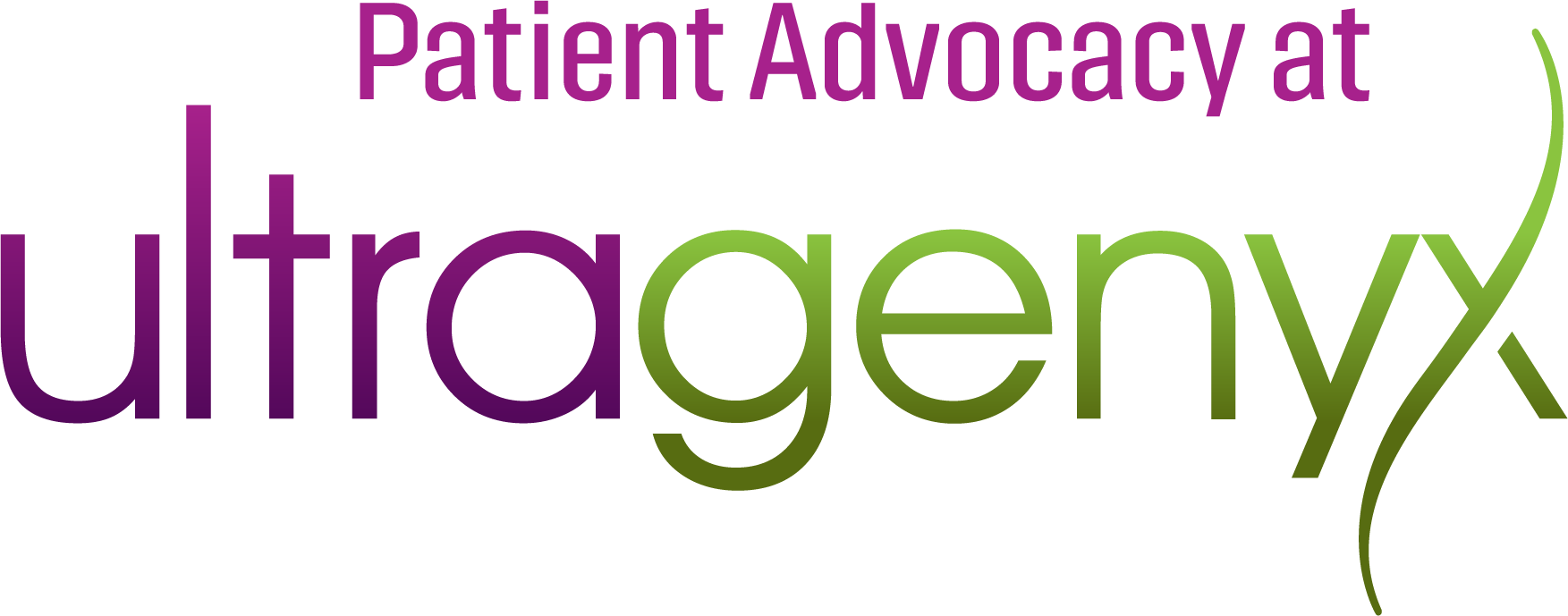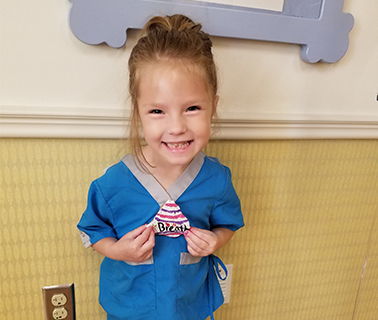Quest for Information
Braylee’s birth was the start of our family in April of 2012. Approximately eight hours before our scheduled discharge from the hospital, doctors discovered Braylee was not maintaining her blood glucose level. We were told everything was probably fine, but the doctors were going to run more tests and rush the newborn screening results. The following day while we were still in the hospital, the state laboratory called and told us to bring Braylee to the nearest emergency room immediately so she could be evaluated by a medical professional. Right then, we knew something was wrong.
We were informed that Braylee’s newborn screening results flagged for long-chain L-3 hydroxyacyl-CoA dehydrogenase deficiency (LCHAD), a type of fatty acid oxidation disorder (FAOD). Braylee was admitted to the NICU as the doctors, nurses, and we as new parents tried to learn everything we could about her rare disorder. Since her disorder is considered relatively “new,” having only been discovered in 1980’s, there is still a lot to learn about it. There were so many unknowns, making us fear what the future could really hold.
Navigating Daily Challenges
Raising a child with a rare disease is very difficult. For instance, many social activities involve food, but Braylee was unable to eat 99% of what other children can. Simple things in life were difficult for her. She was hospitalized several times a year. Insurance companies often did not cover the medical food that is necessary to keep her as healthy as possible.
“As Braylee grew up, she learned about her ‘special body.’ As parents, our goal was to make sure she knew about her body and understood that everyone is different. She would call her food ‘Braylee-safe.’ We tried to find new recipes and food products for Braylee and experimented with many things for her to eat.”
Despite having to be hospitalized many times and having to drive several hours to doctor appointments for the specialist care she needed, Braylee remained so happy and positive. Even on her hardest days, she had the ability to make everyone around her smile, laugh, and be happy, often reminding us that “it will be okay.”
Through networking with other LCHAD families, we’ve learned that LCHAD affects every child very differently. Life would change day by day, and we sometimes had to cancel outings because her body just couldn’t handle it. Many changes were trial-and-error, and there was no magic medication or therapy that would help her. The hardest thing about raising a child with LCHAD is letting them run around and be crazy like kids do but trying to do it safely so that it wouldn’t break down her muscle.
Gaining her Wings
In November 2017 at the tender age of five, Braylee gained her wings after a courageous battle with LCHAD. She suffered complications from her disorder that sheds some light into the many unknowns of LCHAD. Now our mission is to honor Braylee in a different way by raising awareness about her disorder and rare diseases. We are so grateful for companies who support the rare disease community because, as parents, it can often feel as though you are alone. Our path through Braylee’s diagnosis, her complex journey in life, and her gaining her wings is more than we ever thought we’d have to endure, but we are hopeful for advances in research and education to assist other families in the future! Our biggest advice to families raising a child with a rare disease is to learn as much as you can about it, conduct lots of research, and advocate for your family and your child. Never feel like you’re pushing too hard. Every child and family has the right to fight for more – and you deserve it!
Written by Brittany, Braylee’s mother
Long-chain Fatty Acid Oxidation Disorders (LC-FAOD)
Learn more about long-chain fatty acid oxidation disorders, accessing related resources, and finding opportunities to participate in research for LC-FAOD.
Learn More about LC-FAODFAODinFocus
Your comprehensive resource for information about LC-FAOD.
Learn More about LC-FAOD on FAODinFocus
